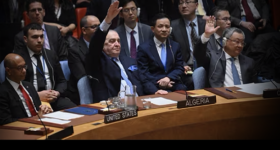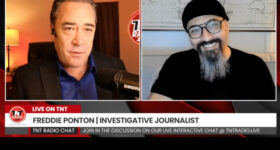21st Century Wire says…
How corrupt is the public sector in the United States today?
Transparency International states:
“Corruption translates into human suffering, with poor families being extorted for bribes to see doctors or to get access to clean drinking water. It leads to failure in the delivery of basic services like education or healthcare. It derails the building of essential infrastructure, as corrupt leaders skim funds.
Corruption amounts to a dirty tax, and the poor and most vulnerable are its primary victims.
So, how do we counter the effects of public sector corruption?”
According to recent power-rankings, the United States has moved into the world’s top tier in the area of public sector corruption. The public are now coming awake to that reality…
.
Money in politics drives up U.S. corruption perception index
.
Kathy Kiely
Sunlight Foundation
The United States scores worse than many of its partners in the developed world on this year’s Corruption Perception Index in part because of money in politics, the group that publishes the index said Wednesday.

Transparency International’s compilation of surveys by well known civic and business groups ranked the U.S. at 19 among 174 countries, with No. 1 being the country with the least perception of corruption (a ranking shared by Denmark, Finland and New Zealand) and No. 174 (Somalia) being the country perceived as the most corrupt. Among the nations getting a better ranking than than the U.S. were Singapore, Australia, Canada, Germany, and Japan.
More than two-thirds of the countries scored below 50 on the CPI index. The perfect score, for a “very clean” society is 100. The U.S. score: 74, which most school teachers might mark a “C.”
In a release accompanying the latest release of the respecte annual survey, Transparency International cited spending in the 2012 campaign as a factor in lowering the American rating. “Americans believe there are continued transparency and corruption issues in local, state and national government institutions and processes,” said the group noting “numerous article and editorials” criticizing “opaque campaign finance and a political culture driven by special interest groups.”
A series of court and Federal Election Commission decisions, beginning with the Supreme Court’s 2010 ruling in the Citizens United case, allowed corporate and union groups to write campaign checks in unlimited amounts, setting off a $1.3 billion political spending spree that included at least $300,000 in contributions whose donors will never be known.
The U.S. ranking on the Corruption Perception Index reflect in part “concerns about integrity in public service, campaign finance and money in politics,” said Claudia Dumas of Transparency International’s U.S. chapter.
(This post has been corrected to reflect the accurate outside spending amount. Thanks to an alert Sunlight Facebook follower for catching the typo)
READ MORE FINANCIAL NEWS AT: 21st Century Wire Financial Files















